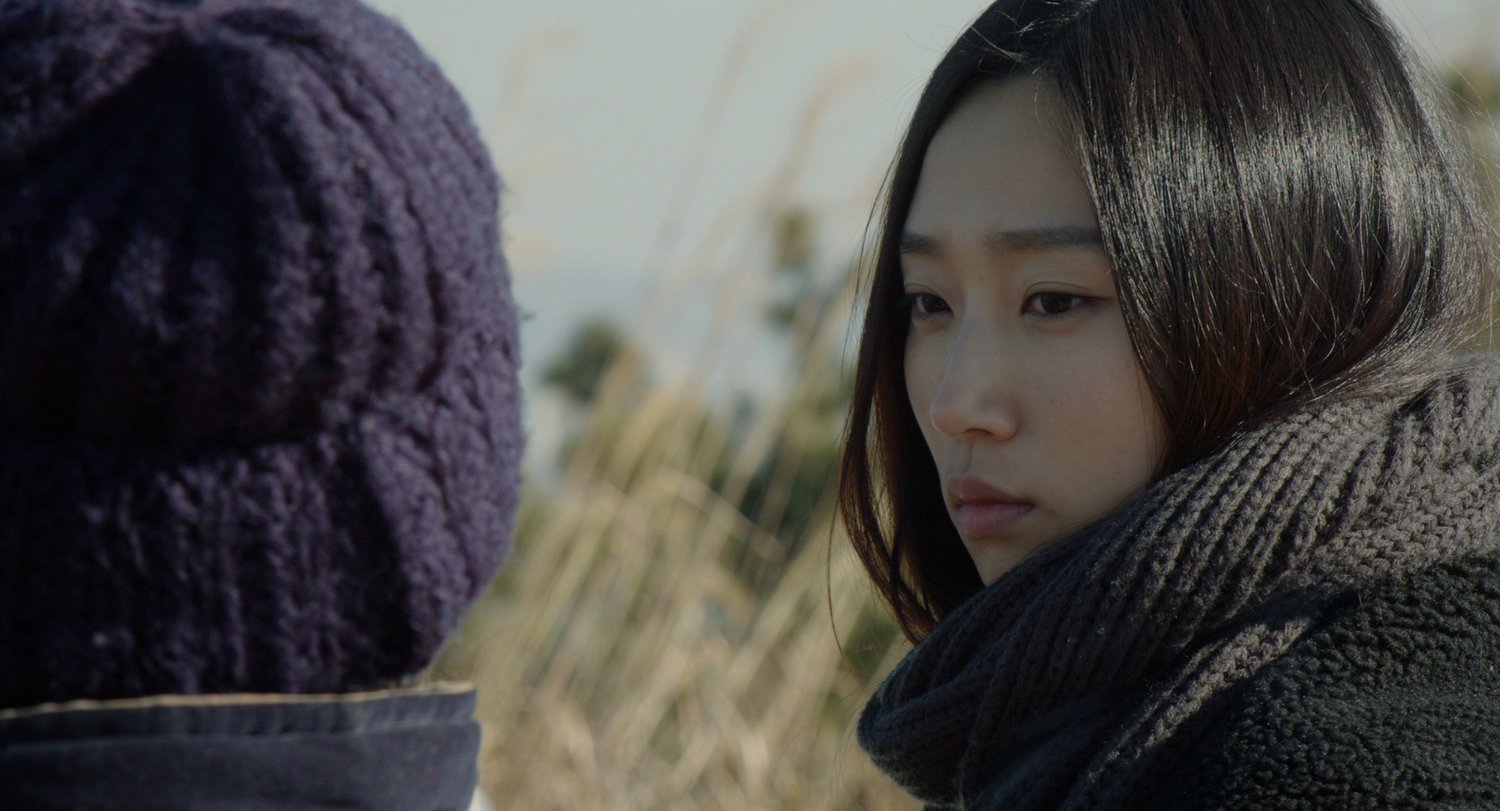Gentle and Our Love Story: Deconstructing the Heteronormative Gaze
Our Love Story, Hyun-ju Lee (2016)
The primary differences between Le Van Kiet's Vietnamese drama Gentle and Lee Hyun-Ju’s South Korean romance Our Love Story lie in the way they are affected by and respond to traditional conservative ideals. Religion and heteronormativity are embedded in both cultures, and despite the fact that Gentle was based on a 19th century Dostoyevsky story, both films appear to take place in the present day.
Regardless of region or time period, a common theme in films about Sapphic women is tragedy— a romance between two women is a tumultuous and melodramatic one that, more often than not, ends in death. There has been some conscious effort to reconfigure this trope in recent years, and Our Love Story would certainly fall into that category. Lee Hyun-ju chose to shoot this film observationally, not melodramatically.
Gentle, Le-Van Kiet (2014)
The love between Yoon-Joo (Lee Sang-Hee) and Ji Soo (Ryu Sun-Young) is innocent. A queer love story in which one person is more sexually reserved than the other (and the sexually reserved person has up until this point felt they were asexual) is a cliché as old as the genre itself— however, it should be noted that in this film, the more "experienced" character (Ji Soo) is younger than the protagonist, the one truly experiencing her first love (Yoon-Joo).
Yoon-Joo and Ji Soon's age gap isn't tremendous by any means, but it should be noted because with any queer love story, deviation from tradition is important. The idea that a younger person would be more sexually liberated and comfortable with her queerness makes more sense than the other way around because she might have grown up in a more accepting world, at least to some degree. Yoon-Joo is in her early thirties but approaches this relationship the way a sixteen-year-old would— with excitement as well as hesitancy. This is all expressed through glances and much like any realistic love story, feelings aren't divulged via monologues.
It's refreshing to see a subtle film about queer romance that isn't wracked with spectacle. Rather than plainly show the homophobia that pervades the world they live in, queer intolerance in Our Love Story appears mostly in the form of implication and quiet micro-aggressions. Queerness, in other words, seems to be something quietly agreed upon as not to be announced.
But the reason this story wouldn't be the same had it been about two men is because of the misogyny that often acts as a catalyst for homophobia in the first place. Unaware of his daughter's sexuality, Ji Soo's father (Jong-soo Kim) is primarily concerned with his daughter being married off to a respectable family, and it seems that "finding a good husband" is still an important part of a woman's life path.
While South Korean ideals remain embedded in misogynistic and homophobic ideas, homophobia actually isn't a tremendous plot point in Our Love Story, at least not explicitly. The main conflicts in this film revolve around Yoon-Joo's journey of self-discovery and the tensions that might arise between any young couple, regardless of orientation.
Our Love Story, Hyun-ju Lee (2016)
Standing in contrast to a modern, quiet and "sexually deviant" romance, the Vietnamese melodrama Gentle is rooted in heteronormativity, tradition, and religiously conservative ideals. The marriage between young ingénue Linh (Nguyen Thanh Tu) and her controlling and much older husband Thien (Dustin Nguyen) is discussed in the same manner as a formal business transaction, and their relationship is icy and loveless.
Thien's attraction to Linh is rooted more in the idea of having a young wife (perhaps for status, control) than any clear physical or romantic attraction. Thien seems to find comfort in patriarchal ideals and his apparent superiority and uses that as a means to "rescue" Linh from her life of poverty, thereby fooling himself into believing that he has done nothing wrong and should expect only gratitude in return. She agrees to marry him in order to escape poverty and her abusive aunts, under the guise of a life of freedom. But her newfound "freedom" comes with the price of a jealous and obsessive husband who seems uncomfortable with the idea that his wife has an identity or interests unrelated to him.
This is especially apparent in the fact that Linh is a devoted Christian, which brings to light Thien's issues with God and religion. Richard Kuipers of Variety said that this "…contributes nicely to the film's observations on the social fabric of a country that's still in recovery and grappling with changing cultural and economic conditions," where differences in religious beliefs are becoming harder to ignore, and showing these differences impeding upon the traditional familial structure shows the cultural anxiety that pervades this film.
Gentle, Le-Van Kiet (2014)
Deftly directed by Le Van Kiet, Gentle is unsettlingly slow, in a way that differs from the slowness of Our Love Story. While Our Love Story's quietness is for delicate observation of young love, Gentle's quietness dredges up unease and tension, like a slow burn to lead up to Linh's eventual suicide.
There are stark differences in the basic color schemes of Linh's former home and her new one. Her aunts live among lush greenery and brightly colored flora while Thien lives in a world of grey and polished chrome, the latter of which is where she is first found in her small metal bed with sliced wrists. This isn't to say that the lushness of the aunt’s home is preferable, as neither the aunts nor Thien are content with their living situation. But that speaks volumes to economic status not being the primary factor in one’s ability to feel less isolated and content. People work to achieve what Thien has, but he still feels that he must buy emotional fulfillment by marrying a young innocent.




